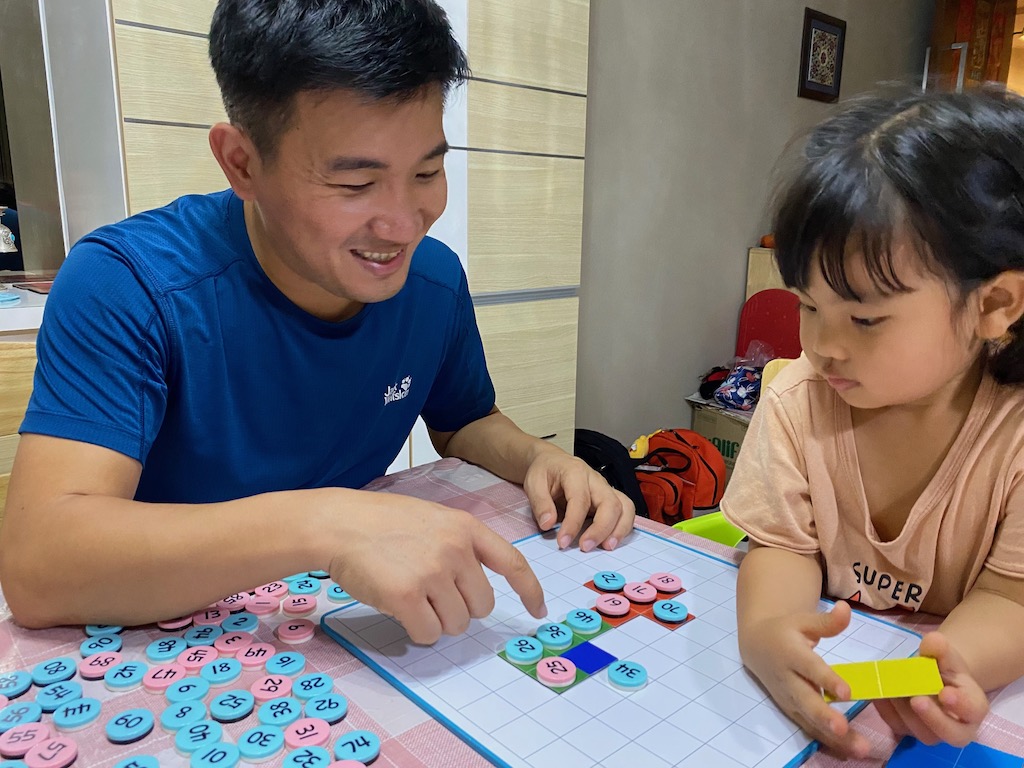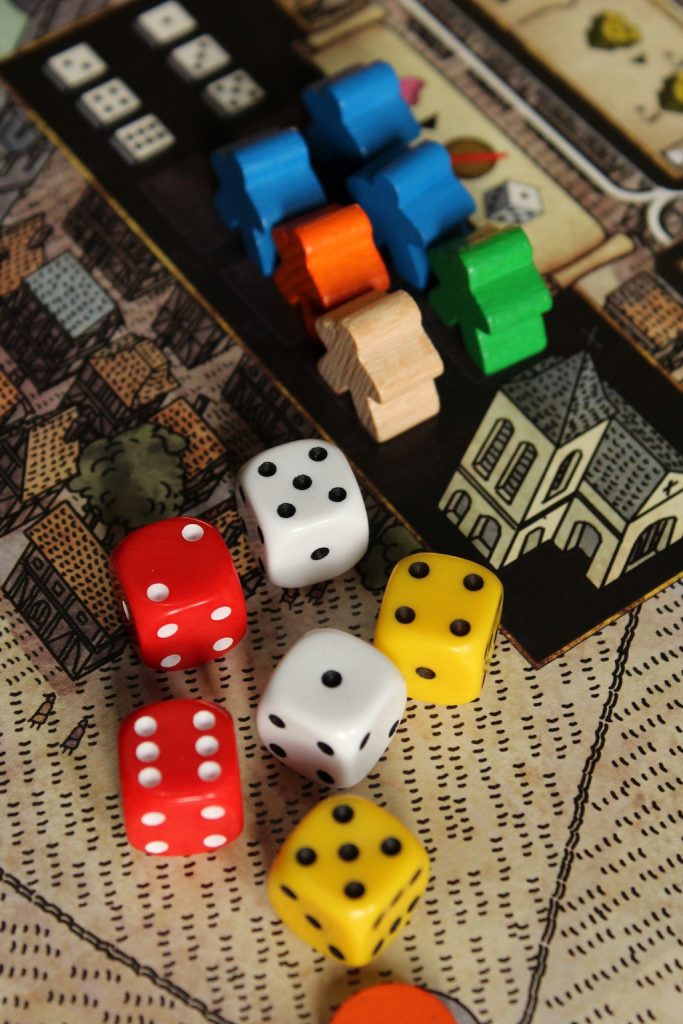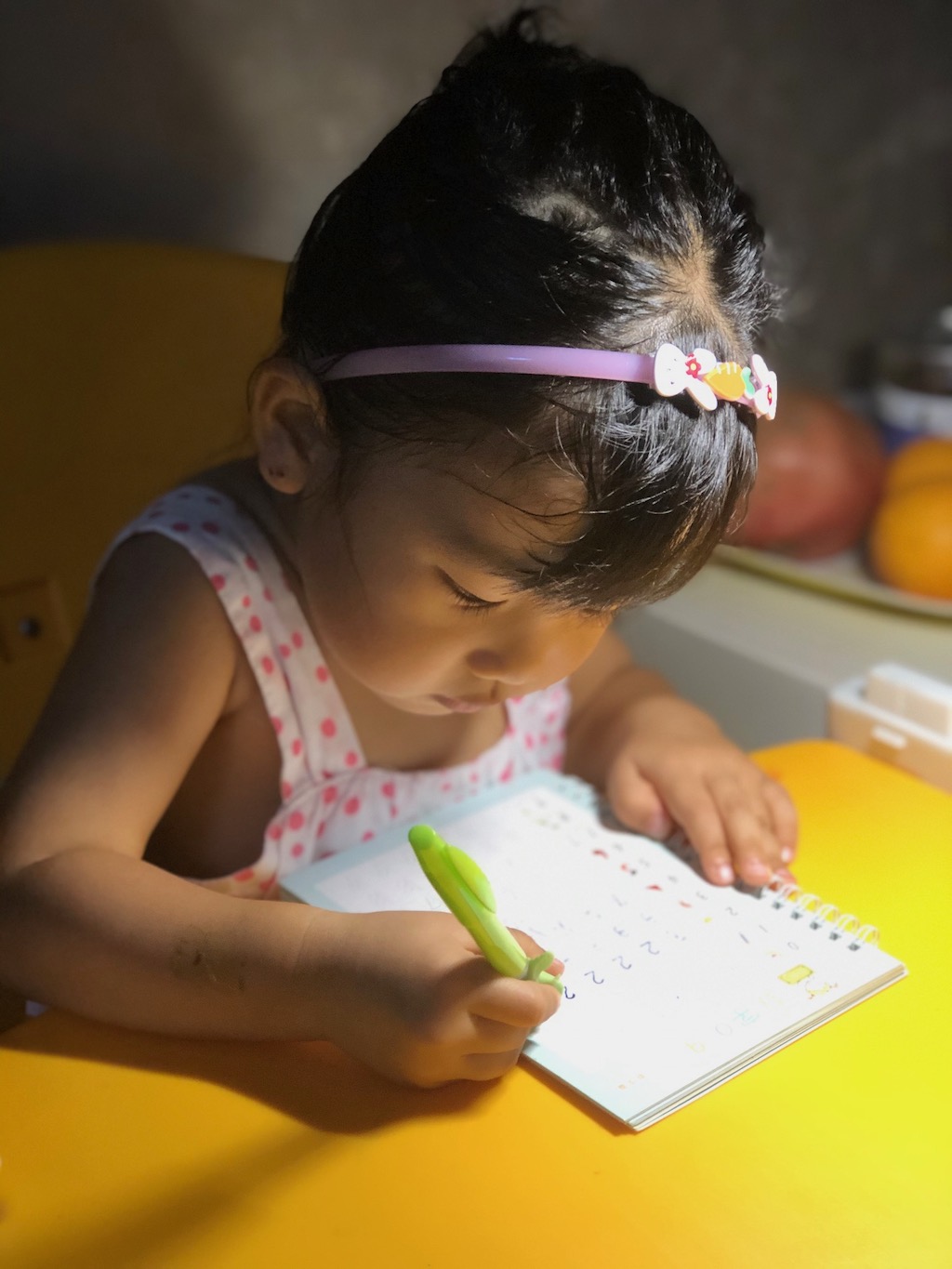SingaporeMotherhood | Parenting
October 2020
How to Raise a Maths-loving Child

When Stanley Han was a child in school, his Maths teacher would leave a maths puzzle on the blackboard in class during lunch time. The teacher called it the ‘Daily Challenge’. Any student who could solve the puzzle would rush to the front of the classroom to write down their name and the answer on the blackboard. This student would become the “Hero of the Day”.
“I always liked this activity, and it made me enjoy the subject more. It’s very exciting to see all your peers working on the same problem, and coming up with different creative solutions for it. So when I developed KooBits, this was the first feature I launched,” says Stanley, 39, founder and CEO of KooBits. This maths-based app is used in over 360 schools (Singapore and around the region).
The ‘challenge’ feature has turned out to be a big success in the app, which uses AI (artificial intelligence) to personalise a child’s learning needs, giving them tasks suited to their ability level. “When the maths challenge is too easy, there is little sense of achievement. When it is too hard, it’s demoralising. Therefore, giving students the right type of challenge is the key,” explains Stanley. “The right kind of encouragement also helps push students to tackle more difficult questions, eventually building their sense of confidence.”
Teaching number concepts to his daughter

At four years of age, Stanley’s daughter Melody is too young for KooBits, which is targeted at primary school students. But she already has a good grasp of numbers. “My daughter could count from one to 100 at age two,” shares Stanley. “However, she didn’t understand the meaning of numbers. For example, she did not comprehend that 13 is bigger than 12. She didn’t understand the concept of quantity. That’s when I realised I needed to do more, and explore more visual ways of teaching Maths to help her understand.”
While KooBIts does not offer preschool content yet, Stanley uses the games in the app to train his daughter’s memory. “I also read KooBits StoryMath to her, to use storytelling to let her understand about certain number concepts.”
In addition, Stanley also plays board games with Melody, using dice. “Dice is a very interesting device to teach maths, because it shows quantity in terms of dots. Children are very good at picking up patterns. So the dots on the dice help her understand quantitative relationships in maths, concepts like addition, subtraction, more than, less than and so on,” he explains.

Should we worry if our children can’t do maths?
“Just like any parent, I want to see my child succeed in life. I believe being good in maths is very important to almost any profession: engineers, finance analysts, policy makers. However I believe parents should worry more if their children have no interest in maths. Proficiency can be trained, concepts can be learnt, but lack of interest can sometimes be permanent.
Is maths important for life? Why?
Of course! Maths is essential for many parts of life, especially as you get older. From simple everyday things like salaries, budgeting and finances, to having a firm grasp of probability and not spending money on lottery, to reading the news and understanding what news presenters mean when they say “one in five people in Singapore” (that’s 20% of people in Singapore, which is about 1.2 million people).
Learning maths helps you develop a solid foundation in methodical thinking, like how to move logically from step to step when solving a problem, which is a skill you need even when you are not counting.
What’s the one thing that maths has taught you, that no other subject can?
I think learning maths has taught me about first principles thinking. Sometimes called “reasoning from first principles,” the idea is to break down complicated problems into basic elements and then reassemble them from the ground up.
In business and in life, we encounter tough and complicated problems all the time. It’s important to know how to break down complicated problems into simpler ones, and choose the right methods to solve them. This problem-solving skill is definitely a lifelong skill that every child should learn from young.
(See also: 4 Educational Games to Create with your Preschooler)
Any advice for parents who want to raise a maths-loving child?

Start by changing the way you talk about maths: Sometimes, you might catch yourself saying things like “I’m just terrible at maths” or even “being bad at maths is genetic” — stop yourself. It is important to model positivity and persistence, so your child doesn’t start their maths journey with a negative impression of the subject.
If your child is younger: Incorporate small bits of maths play into everyday life to help them understand the value of maths. It doesn’t have to be big tasks, but things you may already be doing. Get your child to sort and count change, or bake with them and ask them how much of each ingredient they will need if you halve or double the recipe.
Take into account your child’s hobbies and interests: If your child likes video games like Fortnite, show them how maths is important in every aspect of the game, from loot probability to calculating angles of approach. There are many fun videos on how maths relates to interests you and your child might share — from game development to fashion design — that you can watch together!
For older children: If they have an appetite for more knowledge, help them explore the abstract beauty of maths. There is a misconception that people who are arts-inclined are bad at maths. Picture books are a brilliant way to get artistically-inclined children interested in mathematics. Mitsumasa Anno has many maths picture books introducing complex maths concepts in an engaging way to children through beautiful illustrations, that everyone in the family can enjoy. Why not take a trip to the library with your child to check a book or two out?
How do you build good maths-learning habits in your child?

The most important thing in building a habit for anything is setting up a routine. To pick up any new skill, your child should dedicate a fixed amount of time everyday to work on it. Sit with your child to plan out their schedule, and set up a dedicated homework station with everything they need. Once they are sitting at their homework station at homework time, it’s time for focused work.
Most importantly, remember that moderation is key. Regular short learning sessions are more effective at keeping children concentrated on their tasks. Don’t overdo things. You might have experienced it with your child, when they do very well studying one thing for two hours straight on one day, but can’t focus on the next. Spend a reasonable amount of time with good focus, take a break, and then move on to the next subject.”
(See also: How Adele can Teach your Child Maths & other Tips that Help Children with Dyslexia Learn Better)
Images: Courtesy of Stanley Han, unless specified
All content from this article, including images, cannot be reproduced without credits or written permission from SingaporeMotherhood.
Follow us on Facebook, Instagram, and Telegram for the latest article and promotion updates.





